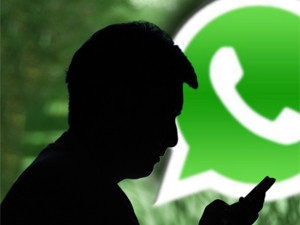
As it stands, video calling is unlikely to take off in any significant way in SA, with voice applications gaining traction among local mobile users long before video really drives a wedge into the market.
Data costs, network coverage, quality of devices and user acceptance are all challenges video calling on mobile - as offered by Microsoft (Skype), Google (Hangouts), Apple (FaceTime) and, as of this week, Facebook (Messenger) - still has to get past before it goes mainstream.
This is according to analysts, in response to the introduction of the world's largest social network's own "free" video calling service via its Messenger smartphone app, announced by Facebook on Monday. The new feature theoretically pits Messenger against the likes of Skype, FaceTime and Hangouts.
Video calling via messenger is available for Android devices and iPhone in a number of countries already, including Nigeria. Although Facebook could not confirm its country-by-country plans, SA may be next on the list as Facebook rolls out the feature over the coming months.
According to Africa Practice, Facebook is the third most visited Web site in both Nigeria and SA. But Facebook is evaluating rollout on a coverage basis. Yesterday, the company told ITWeb it would be working to rollout video calling via Messenger more broadly over the coming months, starting with "places where people can make and receive high quality video calls (based on round trip time and bandwidth)".
For some places in the world, Facebook would need to make sure video calling works over lower bandwidth levels, the company said.
Mainstream miss
BMI-TechKnowledge director Brian Neilson notes video calling is highly dependent on people having time to sit still, while the current trend is the opposite - towards shorter communication.
Africa Analysis analyst Dobek Pater says, as far as his experience goes, video calling on mobile in general has seen low levels of uptake. "However, over time it will increase, although its prevalence will depend on the cost of data versus disposable income among consumers and how mobile operators react to the growing voice over IP (VOIP) threat."
As an approximate guide, Skype says the following are examples of typical data use:
Skype-to-Skype calls: 50Kbps or around 375KB for one minute of calling
Calls to mobile numbers or landlines: 6-20Kbps or around 150KB for one minute of calling
Video calls between two mobile phone devices: 500Kbps
Video calls between a mobile phone and a computer: 600Kbps
Pater says, at the moment, the ability to make video calls on our mobile networks may also be limited due to network quality. "A standard video call requires around a 500Kbps to 600Kbps steady connection. This is not always available due to congestion or poor coverage in some parts. This will obviously improve with 4G deployment and growing densification of 3G, but adoption of 4G will be gradual."
Ovum analyst Richard Hurst says Facebook's video calling addition is more of a "me too" play and any new entrant would have to have a compelling offer if it were to gain new users and entice existing users (of the incumbent video calling services) over to their platform.
Counting costs
Although in some cases video calling may work out cheaper than what SA's networks charge for voice calls, analysts note it is never entirely "free". Working out the costs, however, is a complex affair. "The variable rate of the data use will imply the cost will be difficult to determine ahead of time," says Hurst.
Neilson says video calling rates depend on the various data costs. "It also depends on the quality of the video call, which can range from 300Kbps for low quality to 500Kbps for high quality to 1.5Mbps for high definition."
Assuming an average transmission rate of 500Kbps, a high quality Skype video call would consume 4MB per minute for each user, he notes. (Each user pays the same amount, so a user should multiply this by the number of users in a session to get the real cost.)
"If you are using mobile data at 15c per MB, it would thus cost each user about 56c a minute, with voice-only sessions costing about 11c per minute."
Pater says a Skype-to-Skype video call may consume 3MB to 4MB per minute. "Depending on what you pay per MB, the cost could range from tens of cents to more than R1. Therefore, it may or may not be more costly than the average cost of a mobile switched voice usage."
Share